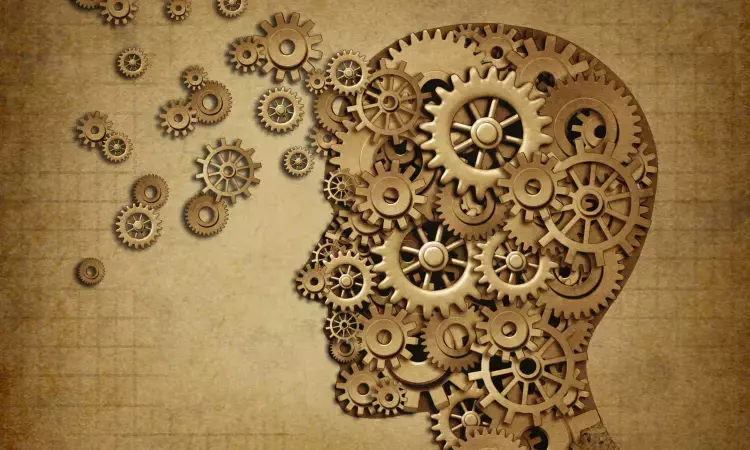- Home
- Medical news & Guidelines
- Anesthesiology
- Cardiology and CTVS
- Critical Care
- Dentistry
- Dermatology
- Diabetes and Endocrinology
- ENT
- Gastroenterology
- Medicine
- Nephrology
- Neurology
- Obstretics-Gynaecology
- Oncology
- Ophthalmology
- Orthopaedics
- Pediatrics-Neonatology
- Psychiatry
- Pulmonology
- Radiology
- Surgery
- Urology
- Laboratory Medicine
- Diet
- Nursing
- Paramedical
- Physiotherapy
- Health news
- Fact Check
- Bone Health Fact Check
- Brain Health Fact Check
- Cancer Related Fact Check
- Child Care Fact Check
- Dental and oral health fact check
- Diabetes and metabolic health fact check
- Diet and Nutrition Fact Check
- Eye and ENT Care Fact Check
- Fitness fact check
- Gut health fact check
- Heart health fact check
- Kidney health fact check
- Medical education fact check
- Men's health fact check
- Respiratory fact check
- Skin and hair care fact check
- Vaccine and Immunization fact check
- Women's health fact check
- AYUSH
- State News
- Andaman and Nicobar Islands
- Andhra Pradesh
- Arunachal Pradesh
- Assam
- Bihar
- Chandigarh
- Chattisgarh
- Dadra and Nagar Haveli
- Daman and Diu
- Delhi
- Goa
- Gujarat
- Haryana
- Himachal Pradesh
- Jammu & Kashmir
- Jharkhand
- Karnataka
- Kerala
- Ladakh
- Lakshadweep
- Madhya Pradesh
- Maharashtra
- Manipur
- Meghalaya
- Mizoram
- Nagaland
- Odisha
- Puducherry
- Punjab
- Rajasthan
- Sikkim
- Tamil Nadu
- Telangana
- Tripura
- Uttar Pradesh
- Uttrakhand
- West Bengal
- Medical Education
- Industry
Researchers find that Antidepressants may improve brain function

Researchers have found that SSRI (Selective Serotonin Reuptake Inhibitors) antidepressants have the potential to improve certain cognitive functions, such as verbal memory. They measured brain function in patients before and after taking the SSRI escitalopram and correlated this to a drop in the level of one of the serotonin receptors in the brain and to cognitive improvements during treatment. This work is presented for the first time at the ECNP Conference in Milan, after recent publication in the journal Biological Psychiatry.
Serotonin is often described as a ‘feel good’ chemical, and higher levels of serotonin circulating in the brain contribute to a sense of well-being, and can ease clinical depression in most sufferers. There are several serotonin receptors in the brain, and all will serve to regulate well-being by regulating circulating serotonin’s interaction with the brain. However, this work concentrated on only one serotonin receptor, the 5HT4 receptor.
The researchers began by scanning the brains of 90 depressed patients, to measure the quantity of 5HT4 receptor which serotonin binds to. At the same time, patients were given a series of tests to measure mood and cognitive abilities.
Patients were given daily doses of escitalopram, and at the end of an 8-week period, 40 patients were rescanned to measure the quantity of 5HT4 receptor in the brain. The mood of the patients had improved, but the team also found that the levels of 5HT4 receptor had dropped by around 9% possibly due to adaptations to increased levels of serotonin. When they asked these patients to undertake more cognitive tests, they found that their performance had improved, so that the less the 5HT4 receptor had changed the better the cognitive outcome. This phenomenon was particularly prominent for the ability to recall words.
“This is potentially significant” said researcher Vibeke Dam (Copenhagen University Hospital, Rigshospitalet, Denmark), “It seems that the SSRI medication contributes to an improvement on cognitive function, at the same time as helping improve mood. Our work ties the improvement in cognitive function to the specific 5HT4 receptor and suggest that direct serotonin 4 receptor stimulation may be in important pro-cognitive target to consider in optimizing outcomes of antidepressant treatment. It also reinforces the idea that serotonin is crucial to mood improvement.
Co-researcher Vibe Froekjaer (Copenhagen University Hospital, Rigshospitalet, Denmark), added, “This is a first result, so we need to do a lot more work to look at the implications. Poor cognitive function is very hard to treat efficiently and may require extra treatment. This work points to the possibility of stimulating this specific receptor so that we can treat cognitive problems, even aside from whether or not the patient is has overcome the core symptoms of depression”.
The researchers note that this was a real-world study, so there is no placebo control.
The team’s next step is to treat patients with drugs which specifically stimulates the 5HT4 receptor to see the effect on cognitive function; interestingly, serotonin is also found in the gut, and there are drugs available to treat irritable bowel syndrome which specifically bind to and stimulate 5HT4 , which the team may repurpose in these trials.
Commenting, Professor Philip Cowen, Professor of Psychopharmacology at the University of Oxford said:
“In the context of recent controversies about the role of brain serotonin in clinical depression, it is noteworthy that the PET studies of the Copenhagen Group provide unequivocal evidence that brain 5-HT4 receptors are decreased in unmedicated depressed patients. Their work also demonstrates the intimate role of brain 5-HT4 receptors in cognitive function. This confirms recent work from Oxford showing that the 5-HT4 receptor stimulant, prucalopride – a drug licensed for the treatment of constipation- improves memory in both healthy participants and people at risk of depression”.
Reference:
Researchers find that Antidepressants may improve brain function, European College of Neuropsychopharmacology, Meeting: 37th ECNP Congress.
Dr Kamal Kant Kohli-MBBS, DTCD- a chest specialist with more than 30 years of practice and a flair for writing clinical articles, Dr Kamal Kant Kohli joined Medical Dialogues as a Chief Editor of Medical News. Besides writing articles, as an editor, he proofreads and verifies all the medical content published on Medical Dialogues including those coming from journals, studies,medical conferences,guidelines etc. Email: drkohli@medicaldialogues.in. Contact no. 011-43720751


